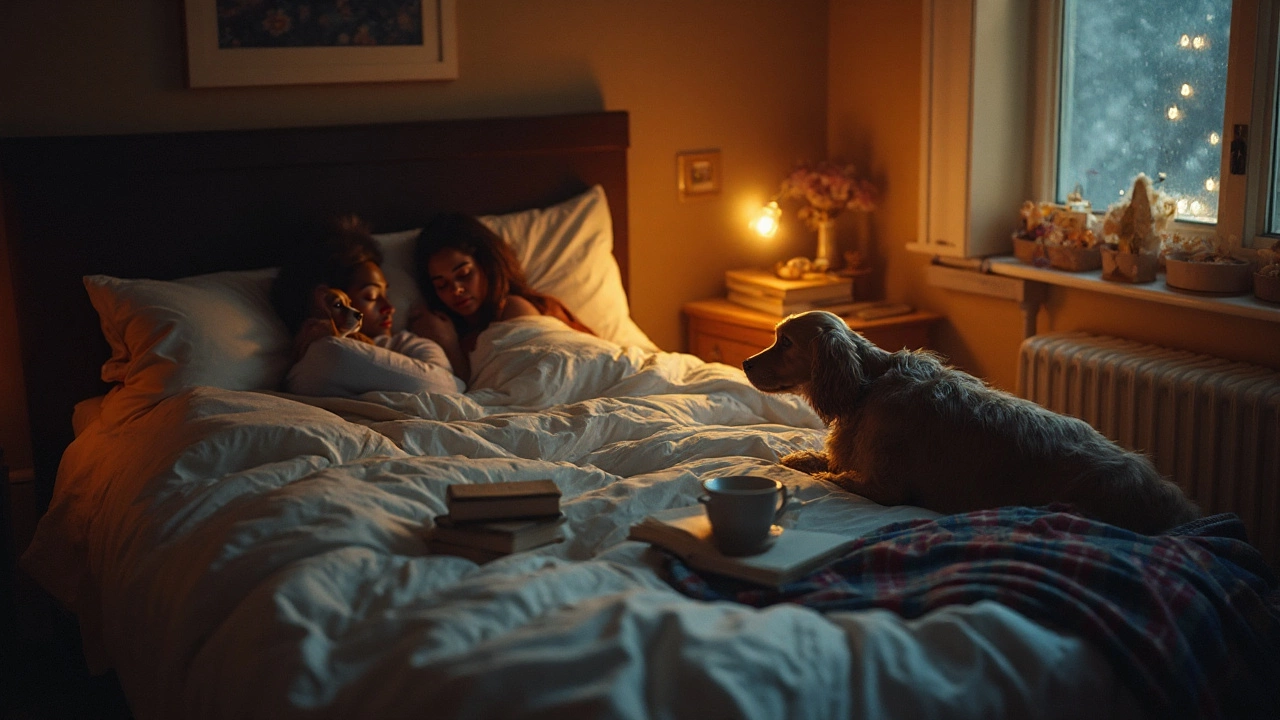Dog Sleep Behavior: What’s Normal and How to Help Your Pup Rest Better
If you’ve ever wondered why your dog snoozes in strange positions or wakes up at odd hours, you’re not alone. Dogs have their own sleep habits, and understanding them can make bedtime smoother for both of you. In this guide we’ll break down the basics of dog sleep, point out signs of good rest, and share easy tricks to improve your dog’s bedtime.
Common Sleep Patterns Every Dog Owner Should Know
Most adult dogs need about 12 to 14 hours of sleep a day, split between deep sleep and lighter dozing. Puppies and senior dogs can need up to 18 hours. A typical night includes short REM bursts where they twitch or whine—this is normal and shows their brain is processing the day.
Dogs often choose a spot that feels safe. A cool floor, a soft bed, or a crate can all work, but the key is consistency. If your dog keeps moving, check for drafts, noise, or an uncomfortable surface.
Nighttime waking isn’t always a problem. A quick bathroom break or a brief anxiety spike can cause a brief stir. If the waking lasts longer than a few minutes or repeats every night, it could be a sign of stress or a medical issue.
Tips for Better Dog Sleep Tonight
1. Set a routine. Feed, walk, and play at the same times each day. Predictable schedules cue your dog’s body to wind down when bedtime approaches.
2. Create a calm zone. Use a dedicated bed or crate, keep the area dim, and limit noise. A white‑noise fan or soft music can drown out street sounds.
3. Exercise earlier. A good walk or play session in the late afternoon burns excess energy. Avoid high‑energy games right before bed, as they can keep your dog wired.
4. Watch the food. Heavy meals right before bed can cause digestive upset and wake‑ups. Offer dinner at least two to three hours before sleep.
5. Check for health issues. Joint pain, allergies, or thyroid problems can disrupt sleep. If you notice excessive panting, restlessness, or frequent bathroom trips, a vet visit is wise.
6. Consider a calming aid. Products like pheromone diffusers or a snug fleece wrap can help nervous pups settle without medication.
7. Limit nighttime water. Reduce water intake a couple of hours before bed to cut down on late‑night bathroom trips.
By applying these simple steps, you’ll likely see fewer night wake‑ups and a more relaxed dog. Remember, every dog is unique—observe what works for yours and tweak as needed.
Understanding dog sleep behavior isn’t rocket science, but a bit of attention can turn a restless night into a peaceful one for both you and your furry friend. Try one or two of the tips today and notice the difference tomorrow.
Do Dogs Sleep With the Alpha Human? Science, Myths, and What Your Dog’s Bed Choice Really Means
Do dogs sleep with the alpha human? Here’s the science behind bed choice, how to set fair sleep rules, and what to do if your dog prefers someone else.
